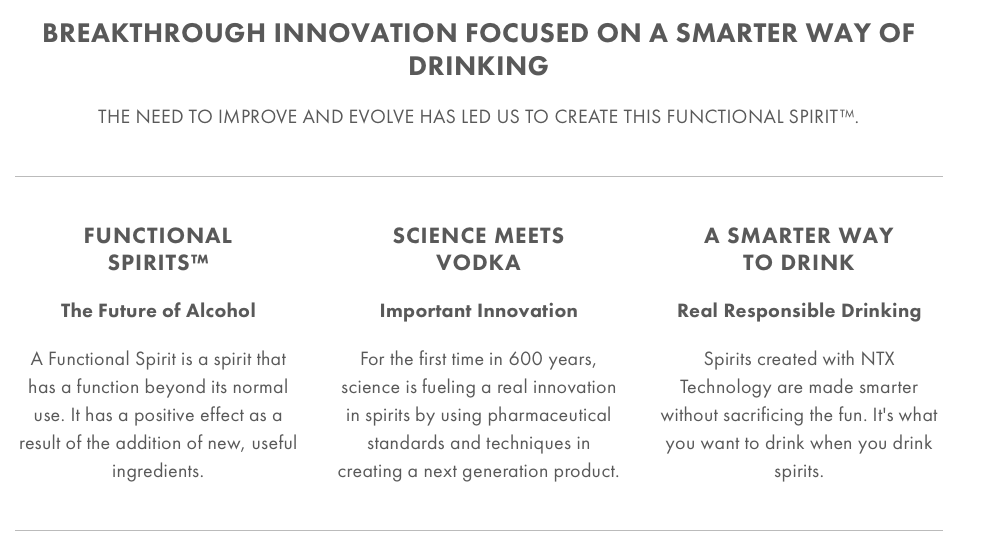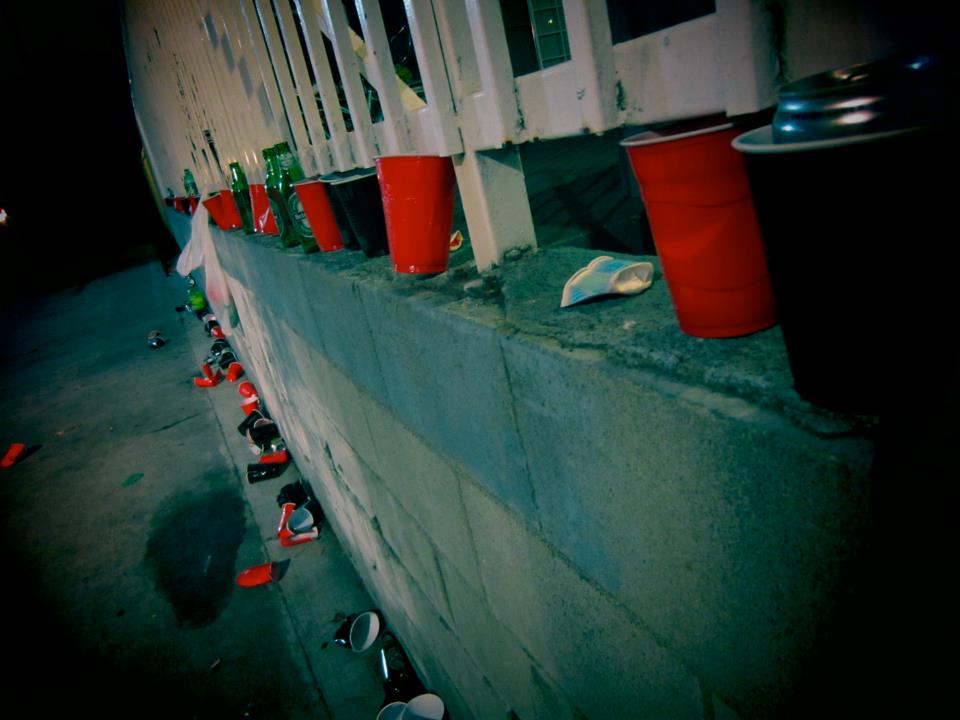What if I told you there was an alcoholic drink which could reduce liver damage by 93%?
What if I told you it’s already in stores?
What if I told you the reason you don’t know about it, is because legally they can’t tell you ANY of this?
True Story.

Flashback to my pre-Paleo, pre-IF, vodka drinking days
On the one hand, alcoholic drinks can liven up life, while moderate drinking even correlates favorably to longevity. Yey! On the other hand, drinking alcohol can cause you to text your ex #inthemoment (because they’ll never know you’re drinking, obvi), decide you are suddenly the most dashing person on the plant, potentially throw up in the bushes, wake up with a hangover, and reap substantial liver stress and DNA damage. With all of this in mind, Harsha Chigurupati, of Chigurupati Technologies (a company with the goal of “aiding the evolution of mankind”) has got our backs! (Or should I say livers?)
WHAT IS IT?
Chigurupati has developed a synergistic compound called NTX, which prevents most of the physical damage caused by alcohol, without killing the buzz... meaning you can have your drink, your liver, and your foolish actions too!
Chigurupati’s parents run the major pharmaceutical company Granules India Limited – ironically one of the largest creators of the liver damaging acetaminophen (aka: Tylenol) in the world. On the plus side, this lucrative background familiar to the pharmaceutical world put Chigurupati in the perfect position to solve the alcohol damaging problem once and for all. In a decade-long crusade, Chigurupati laboriously tested the various “Generally Recognized as Safe” ingredients in the US which can be added to alcohol (there are over 370 of them), until he found three which provide the support needed for the liver to reduce toxic overload and damage. These ended up being glycyrrhizin, mannitol and potassium sorbate. Adding these ingredients to an alcoholic beverage provide the liver with the appropriate substrates to minimize alcohol’s toxic effects. (Glycyrrhizin in particular is an extract of licorice, and increases glutathione levels, which are super important in the detoxification pathway. In fact, glycyrrhizin can increase glutationie levels 10x more than placebo.)
In studies, patients’ liver enzymes climbed from 23-24 when drinking NTX alcohol, compared to 23-35 when drinking normal alcohol. That’s a pretty big difference, my friends.
Chigurupati wanted to engineer the NTX ingredients into the actual alcoholic drinks themselves, rather than provide it as a separate pill. This ensures proper timing of the ingredients alongside the alcohol, while also preserving user habits. NTX doesn’t change the taste of the drink, serving as a sort of invisible barrier to damage. And when I say invisible, I mean real invisible. Almost… secret?
WHY YOU DON’T KNOW ABOUT IT

Flashback to the 21st b’day of one of my favoritest peops on this planet.
Federal regulations, mandated and run by the highly controlling Alcohol and Tobacco Tax and Trade Bureau (TTB), strictly prohibit health-related claims in alcoholic labels. (In fact, the whole industry is very weirdly regulated. Ever noticed there’s no nutrition label on alcoholic drinks? This drove me insane in my calorie and then carb counting label-reading days.) This also means that any company selling alcohol infused with the protective NTX compound, literally can’t tell you about it, even though the health effects are documented in peer reviewed studies and human clinical trials. Talk about a buzzkill! I mean I sort of get the no-health-claims-on-alcohol rationale. The last thing we want is college kids downing handles like it’s vitamin water. (Oh wait, they already do that.) But still, the fact that documented health effects, like “reduces liver damage by 93%,” can’t be listed, when so many overstated health benefits are listed on other food products (yey “heart healthy” breakfast cereals!), is fairly frustrating.
WHERE TO GET IT?
Here comes the good news! The protective NTX compound is now sold (semi-secretly) in stores! It’s currently infused in Bellion Vodka, with an upcoming launch planned for a Bellion tequila and bourbon as well. (For you craziers and southerners! #alcoholstereotyping) Visiting the Bellion website, of course, is super vague, with labels like “Functional Spirits” and “The first functional vodka in the world.” I grabbed the below screencapture from the website:
 NTX-infused Bellion Vodka is sold in stores, primarily in the northeast and southwest. {Sigh} My fingers are crossed that it makes its way to the rest of the country soon! If I had access to this stuff, I’d probably welcome back hard alc drinking into my life. Heck, it might even be better than wine! (I haven’t had hard alcohol in 5 years, thanks to an
NTX-infused Bellion Vodka is sold in stores, primarily in the northeast and southwest. {Sigh} My fingers are crossed that it makes its way to the rest of the country soon! If I had access to this stuff, I’d probably welcome back hard alc drinking into my life. Heck, it might even be better than wine! (I haven’t had hard alcohol in 5 years, thanks to an awful night where I ended up practically dead and heart broken and throwing up in a taxi and then didn’t move for like 3 days interesting experience.)
So will it become public? Chigurupati Technologies has filed a petition to vocalize NTX’s benefits in sale. Read it here.  And for a great interview with Harsha Chigurupati, check out episode #310 of the Bulletproof Podcast.
And for a great interview with Harsha Chigurupati, check out episode #310 of the Bulletproof Podcast.
So yeah, while they can’t say it, I can! Oh hey free speech! (And there’s nothing like a drink to really free up your speech!)
>Post Gets Taken Down By Feds<
REFERENCES

